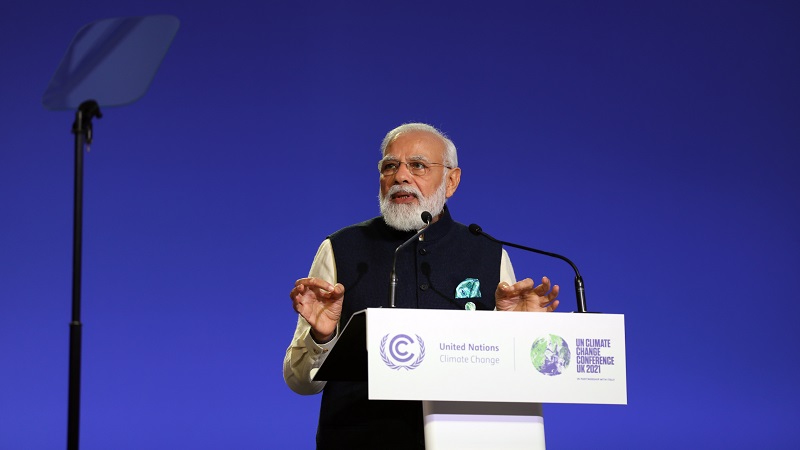A weak turnout is expected from major emitters in Sharm el-Sheikh, shifting the geopolitical showdown to a G20 leaders’ summit in Bali
The world’s biggest emitters won’t attend a leaders’ summit kicking off the Cop27 climate talks in Egypt next week.
More than 100 heads of state and governments are expected to attend the two-day summit, on the theme of “implementation”, in the Red Sea beach resort of Sharm el-Sheikh on 7-8 November.
Amid soaring inflation and deepening geopolitical tensions following Russia’s invasion of Ukraine, the high-level event is a moment for leaders to recommit to international climate cooperation.
But a provisional list of speakers, dated 31 October, shows that neither China’s Xi Jinping nor India’s Narendra Modi is expected to attend.

US president Joe Biden won’t make the leader segment because of an agenda clash with the US mid-term elections on 8 November. A handful of tight races will determine whether the Democrats keep hold of the Senate.
Instead, Biden will travel to Sharm el-Sheikh on 11 November, the White House has confirmed.
“The absence of China and India doesn’t help inject much-needed political momentum into the talks”
Tom Evans, of think tank E3G
In fact, showing from the G20 group of major economies is expected to be poor.
Australia’s Anthony Albanese is skipping the meeting. Defending his decision, he told reporters he “can’t be in all places at once”. “This Cop is one of implementation. It’s not one of a new policy and program,” he said.
Canada’s prime minister Justin Trudeau, who has the worst emissions record in the G7, isn’t on the list. Cat Abreu, a Canadian climate campaigner and founder of Destination Zero, told Climate Home there were no plans for Trudeau to attend the summit. Climate Home has contacted Trudeau’s office for comment.
According to the document published by the Egyptian host on Tuesday, Argentina, Japan, South Korea, Mexico and Turkey are not sending leaders. Indonesia will be represented at the vice president level.
Vladimir Putin, who has become the pariah of the international community, won’t be going. Climate envoy Ruslan Edelgeriyev reportedly said this was because no breakthrough decisions were expected from the climate talks this year.
Jair Bolsonaro, who remains Brazil’s president until Lula da Silva takes over on 1 January, is staying at home. Lula plans to show face although his travel dates have yet to be confirmed. Sources in his campaign team told Reuters it would likely be during the second week of the talks.
Instead, “the geopolitical showdown” on climate action will take place during the G20 leaders’ summit in Bali, on 15-16 November, in parallel with the second week of Cop27, Evans said.
Developing countries will be setting out their asks clearly during the first week of the talks.
“Leaders skipping Sharm can’t duck the pressure for more action, and will need to come up with an ambitious response,”
Tom Evans.
Europe will be better represented. Germany’s Olaf Scholz, France’s Emmanuel Macron and newly elected Italian prime minister Giorgia Meloni will travel to Sharm el-Sheikh for the leaders’ summit.
On Wednesday, UK prime minister Rishi Sunak announced he would be in Egypt to “deliver on Glasgow’s legacy”, after initially saying he wouldn’t go. Boris Johnson, who was in power when the UK hosted last year’s Cop26 summit, had already accepted an invitation from the organisers.
There will be a strong showing from developing countries with at least 33 African leaders expected to take to the podium.
Besides the usual series of national statements, Egypt is organising six high-level roundtables to move the dial on critical themes.
On Monday afternoon, leaders have been invited to one of three parallel discussions on the “just transition”, food security and innovative finance for climate and development. Tuesday’s topics are green hydrogen, water security and “climate change and the sustainability of vulnerable communities”.
Heads of UN agencies, multilateral development banks and civil society representatives will join national leaders for the roundtable events.
In a letter to all participants, incoming Cop27 president Sameh Shoukry, said the roundtables have the aim “of developing practical, impactful and ambitious solutions” on key issues.
Shoukry said Egypt intends to restore what he called the “grand bargain” that underpins the Paris Agreement: that developing countries get financial support from historic polluters to cut their emissions and cope with climate impacts.
Source: Climate Home News








Recent Comments